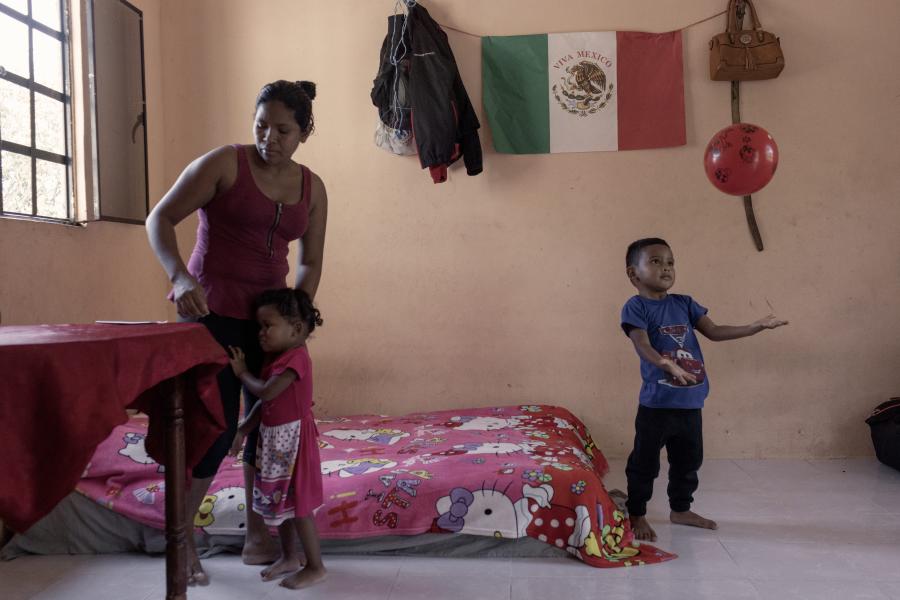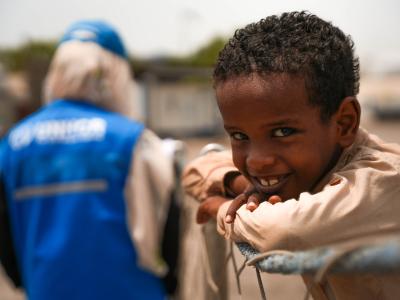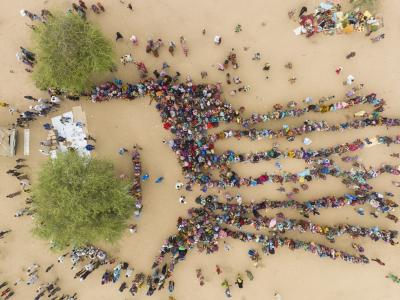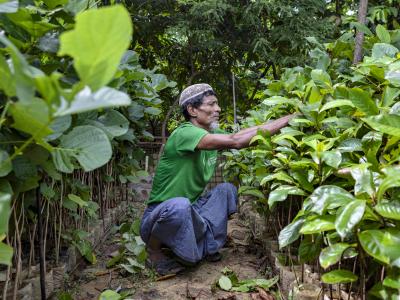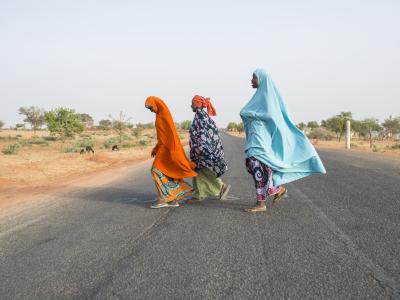Results in 2023
The number of people seeking asylum grew to unprecedented levels in 2023 with 3.6 million new individual applications, with increasingly complex drivers of displacement. Systems for determining refugee status and other international protection needs were challenged. While the trend of increasing asylum applications was not new, the scale of the increase was larger than expected and even the most adaptable and well-resourced systems felt a strain. Systems in low and middle-income countries, which host the majority of the world’s displaced people, were particularly impacted.
Experience has shown that speedy status determination and access to a secure legal status can quickly result in refugees attaining self-sufficiency and better longer term economic outcomes. Conversely, long wait times can mean longer reliance on humanitarian assistance and can also erode public confidence in the asylum system, as it can make it more difficult to return those not in need of international protection.
The increased numbers, coupled with capacity gaps, led to an all-time high global backlog of asylum applications pending decisions of 6.9 million. While large backlogs can often result in longer wait times for status determination, and all the associated issues listed above, the average processing time – from registration of an asylum claim to first instance decision – actually slightly decreased from 2022. While, at over 400 days, this means that the average first instance decision still took over a year, the fact that this number remained stable demonstrates that the efforts of UNHCR and States have made progress in reinforcing asylum capacity.
Over the past several years, UNHCR has been consolidating a shift in terms of how it supports national asylum systems, ensuring that a more effective, sustainable, developmental approach is being used, in line with its strategy currently under development on asylum strengthening, which underwent consultations during 2023.
In 2023, UNHCR focused on supporting States and other stakeholders at country and regional levels in key areas that are fundamental components of a strong asylum system. This included creating adaptive legislative frameworks, strong institutions, capacitated and professional workforces, more effective use of different case processing modalities and increased availability of information about procedures and legal assistance. Several States enacted new laws or reformed their legislative frameworks, including Côte d’Ivoire, Iraq and Somalia; and many States used differentiated case processing modalities, including Benin, Brazil, Canada, Chad, Mexico, South Sudan, Togo and Uganda.
To help process asylum claims from nationals of particular countries, UNHCR also issues country guidance that decision-makers can refer to and use in their decisions. This can reduce the time taken to issue a decision. In 2023 it issued guidance on Nicaragua, Afghanistan, Sudan, Burkina Faso, Ukraine and Colombia.
UNHCR also coordinates the Asylum Capacity Support Group (ACSG), which aims to match States’ commitments to improve their asylum systems with corresponding offers of support from other States or stakeholders. In 2023, the ACSG set up an online Dialogue Platform as a virtual space and hosted a technical event on best practices in the fair and efficient processing of well-founded applications. Examples of good practice were provided by Brazil, Canada, the Democratic Republic of the Congo and the United Kingdom. In addition to the global ACSG framework, UNHCR supported many regional organizations and networks working on asylum capacity development. These included networks specifically devoted to refugee issues, including the MIRPS Support Platform and the Quito Process in the Americas. The ACSG saw increased engagement by the South African Development Community, the East African Community, the Intergovernmental Authority on Development, and the Economic Community of West Africa.
The results of these increased activities and engagement were seen in the commitments made by States from all regions of the world towards the asylum capacity multi-stakeholder pledge at the Global Refugee Forum. With over 50 pledges made, including 40 pledges by States to improve their asylum capacity or offer support to other countries, the outcome of the GRF in this area was a tangible example of global solidarity. With that being said, there still remains a gap between the need for asylum capacity support and offers for such support.
While UNHCR encourages States that currently do not have asylum systems to take steps to develop them, UNHCR still conducts refugee status determination under its mandate in approximately 50 countries in any given year in the absence of a fair and efficient national asylum system. UNCHR continued to work on improving the quality and efficiency of its procedures, and to develop good practice examples that could also be useful in State systems, including through the use of technology. One pressing issue facing many asylum systems globally is high turnover and burnout of staff, as a result of heavy workload and secondary trauma. UNHCR has placed additional attention on this area by developing training modules on well-being, and platforms that provide access to relevant tools and resources on the topic, including sharing of good practices across regions and operations.
Core indicators

2.1 Average processing time (in days) from registration to first instance asylum decision

2.2 Proportion of people undergoing asylum procedures who have access to legal representation

2.3 Proportion of people undergoing asylum procedures who have access to an effective appeal mechanism after first instance rejection of their claim
Financial overview
Global expenditure and budget for Status determination
$124 million spent against a budget of $223 million
$99 million of unmet needs or 44% of the budget
